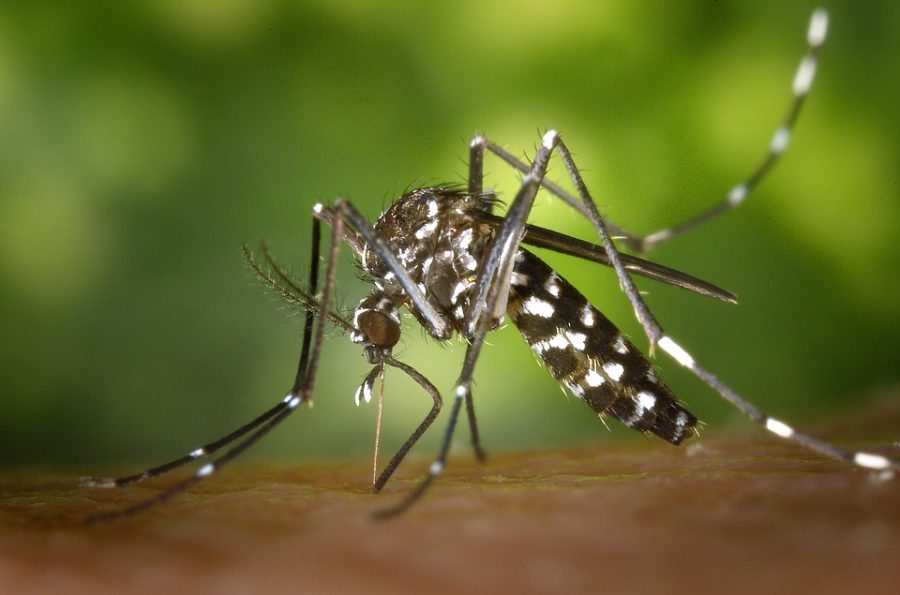2016 Great Arizona Mosquito Hunt arrives at Perry
In the past two years the town of Gilbert has seen an increase in the number of mosquitos. During the monsoon season, even Perry cannot escape them. Environmental Science teacher Jill Irvin and her classes are helping with research by conducting experiments to catch the mosquitoes on campus.
The concerning mass amounts of mosquitoes, which is due to the increased humidity and still standing water, has come to the attention of the Arizona Department of Health Services (ADHS). In response to it, the second annual 2016 Great Arizona Mosquito Hunt has been brought back. In order to determine if these mosquitoes are a certain species, which may possibly carry a virus, the ADHS has set up a hunt for anyone willing to participate all over the state of Arizona.
This hunt is designed for participants to catch mosquito eggs with a trap and send them to the ADHS where the bugs will then be scanned for a certain species of mosquitoes.
Hayley Belisle-Yaglom, the Vector-borne and Zoonotic Disease Epidemiologist for ADHS, said “[the eggs] are scanned to look for the presence of Aedes aegypti eggs. The purpose of our project is to determine the presence or absence of this mosquito throughout Arizona.”
The Center for Disease Control and Prevention defines the Aedes aegypti mosquito to be mosquitoes that can transmit the viruses that cause dengue fever.
Irvin said that “it will allow the Department of Health and other state organizations prevent and/or plan for any potential threats to specific Arizona communities from mosquito-borne illnesses. It’s a good idea to be proactive rather than reactive.”
The mosquito traps are mainly black jars that contain water and rabbit chow, making them a perfect nesting place for mosquitoes. Inside the trap is a seed germination paper that will collect the eggs and the traps are set out for two to four weeks to collect data.
“‘The information gathered will be used by public health to create maps and be better prepared to respond to disease threats in [the] community,’” the ADHS explained in their flyer. “‘We also want to teach students about mosquito biology and the importance of protecting themselves from disease.’”
The participants are at no risk of infection or getting bitten more than usual when conducting this hunt. In fact, it has not been found yet that these mosquitoes in Arizona carry any diseases.

Hi, my name is Morgan. I am a senior at Perry and this is my second year in newspaper. I write about Math, Science, STEM, local news, and local government....



